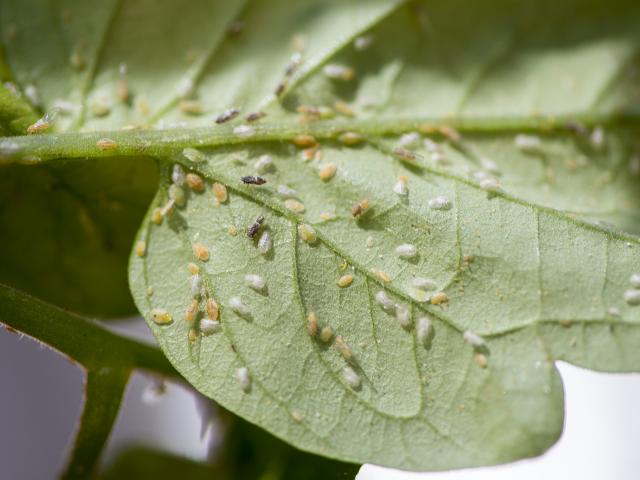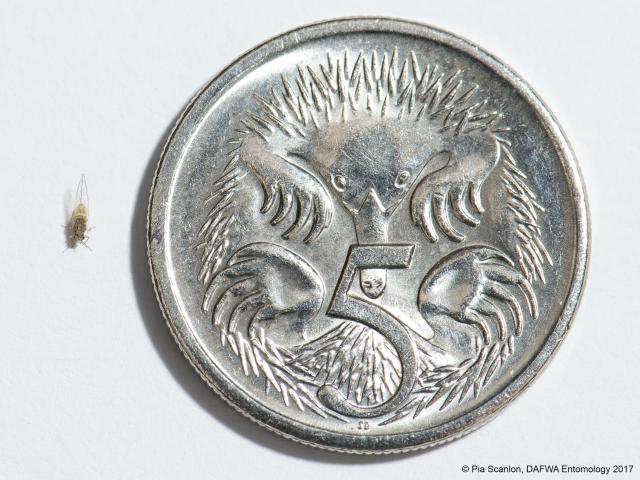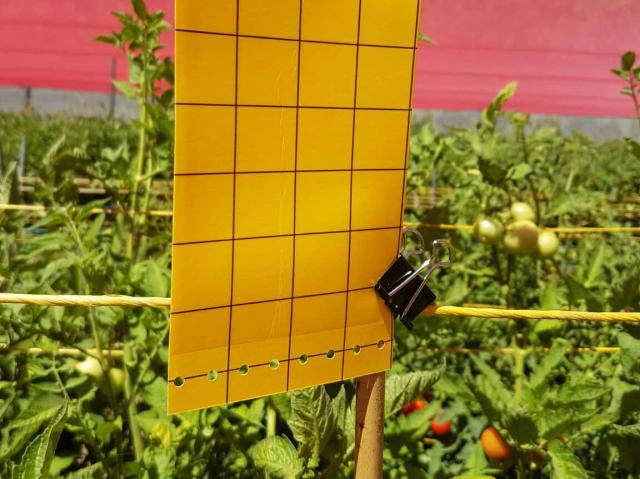Biosecurity alert: new emergency plant pest detected in Western Australia
The Department of Agriculture and Food, Western Australia (DAFWA) is working with the WA horticulture industry to respond to the detection of tomato potato psyllid (Bactericera cockerelli), an exotic plant pest.
This is the first time the psyllid has been detected in Australia.
Tomato potato psyllid attacks a range of plants including potato, tomato, eggplant, capsicum, chilli, tamarillo, cape gooseberry, goji berry, and sweet potato.
The weeds nightshade, groundcherry, African boxthorn, kangaroo apple and field bindweed are also hosts of the pest.
The tomato potato psyllid poses a significant threat to production and can impact market access.
To date, the psyllid has been confirmed on more than 50 properties across the Perth metropolitan area including commercial and residential properties, and retail outlets, and on a small number of properties in regional areas including Busselton, Margaret River, Yarloop and Balingup
A Quarantine Area Notice is in place for the Perth metropolitan area, as well as the shires of Murray, Chittering and Gingin, to help prevent the spread of tomato potato psyllid to other parts of the state.
Vegetable growers – check and report, even if you don’t find anything
Commercial vegetable producers and residential growers in regional areas are urged to check for signs of the tomato potato psyllid and report via MyPestGuide Reporter app, email or phone.
The free MyPestGuide Reporter app is available from the Google Play or the App Store.Alternatively, you can email photos with your name, address and mobile number to info@agric.wa.gov.au, or call the Pest and Disease Information Service on 1800 084 881.
It’s important to report even if you don’t find any signs of the psyllid. These reports are essential to help determine the spread of the pest.
About the tomato potato psyllid and what to look for
The tomato potato psyllid is a tiny sap-sucking insect with three stages of development – egg, nymph and adult. Adults and nymphs of tomato potato psyllid cause injury to plants by feeding with sucking mouth parts.
Look for the insect in all its life stages on the underside of leaves.
Signs of tomato potato psyllid include:
- Insects jumping from the foliage when disturbed.
- White sugar-like granules which coat the plant leaves and stems, and can lead to the development of sooty mould.
- Yellowing of leaf margins and upward curling of the leaves.
- Severe wilting of plants caused by high numbers of psyllids feeding.
- Shortening of stem internodes.
- Stem death similar to other potato and tomato disorders.
Response activities
The department is progressing with targeted surveillance in regional areas as a priority.
Department officers have inspected more than 450 properties, and installed almost 3000 ‘sticky traps’ across the state since surveillance activities commenced.
Grower information sessions continue to be held in conjunction with VegetablesWA, Potato Growers Association of WA and AUSVEG.
A Quarantine Area Notice is in place for the Perth metropolitan area, as well as the shires of Murray, Chittering and Gingin, to help prevent the spread of tomato potato psyllid to other parts of the state. More information about the Quarantine Area Notice is available from www.agric.wa.gov.au
Industry Updates are being provided as new information becomes available. The most recent Industry Update is available at www.agric.wa.au/tpp
Biosecurity reminder for growers
Practice sound crop hygiene/biosecurity practices to prevent the entry, establishment and spread of pests and diseases.
Proper signage to restrict entry, routine surveillance for pests, on-farm clean down facilities, and action plan and checklist are all part of a farm biosecurity regime.
Management of any host weeds such as nightshade, groundcherry, matrimony vine, and field bindweed should also be considered.
More information on biosecurity is available at the Farm Biosecurity website www.farmbiosecurity.com.au
Additional resources include the AUSVEG Farm Biosecurity Plan, http://ausveg.com.au/biosecurity/Biosecurity%20R.pdf
Further information
More information, including how to look for and report the pest, Industry Updates and details on the Quarantine Area Notice, is available on the department’s website at www.agric.wa.gov.au/tpp
Tomato potato psyllid is an emergency plant pest and the department is working with industry as a priority to minimise the impact of this pest incursion.
Industry contacts for growers
VegetablesWA
Phone: 08 9481 0834
Email: office@vegetableswa.com.au
Potato Growers Association of WA
Phone: (08) 9481 0834
Email: potatoes@vegetableswa.com.au
Nursery and Garden Industry Western Australia
Matthew Lunn, Chief Executive Officer
Phone: 0410 714 207
Email: matthew@ngiwa.com.au
Department of Agriculture and Food, WA
Rohan Prince, Industry Liaison
Phone: 0429 680 069
Email: rohan.prince@agric.wa.gov.au
Pest and Disease Information Service
Phone: 1800 084 881
Email: info@agric.wa.gov.au



